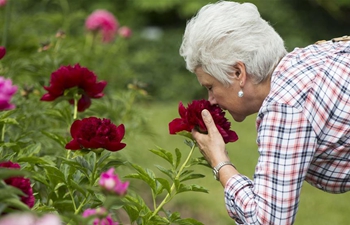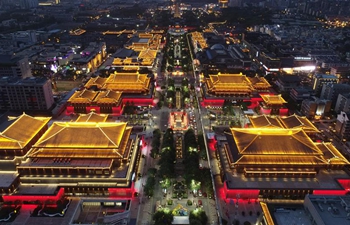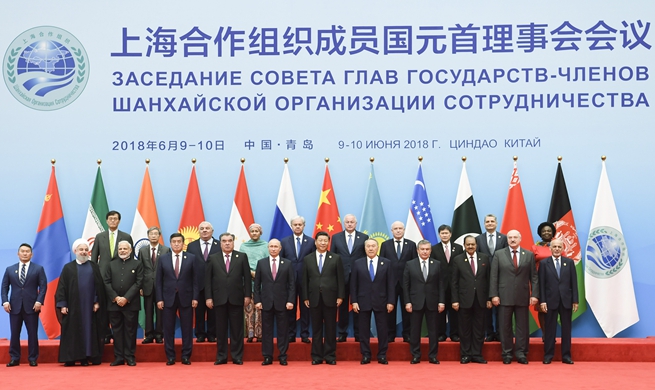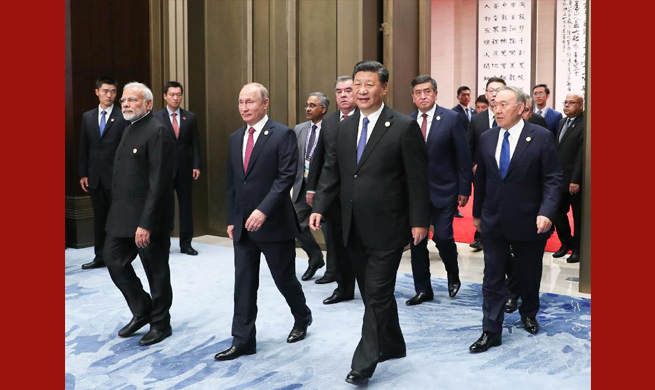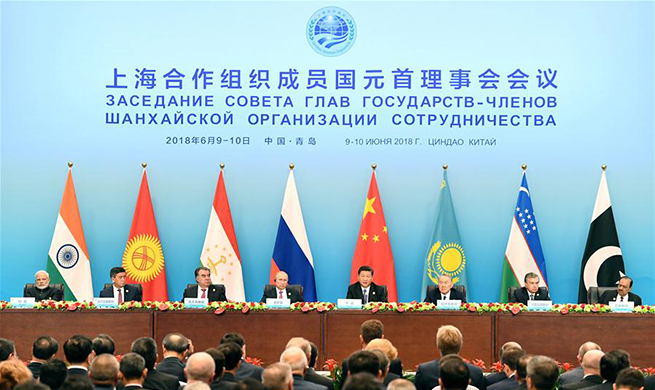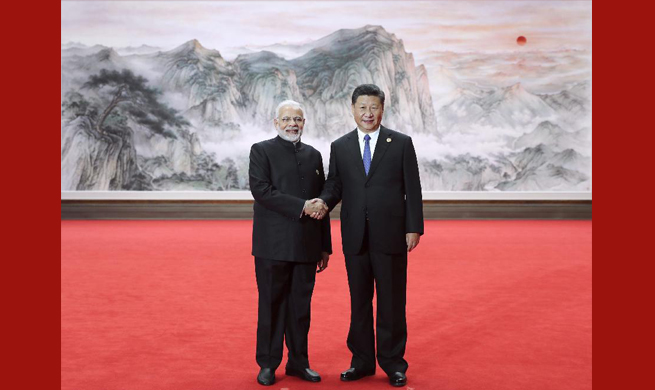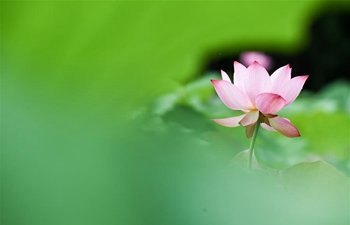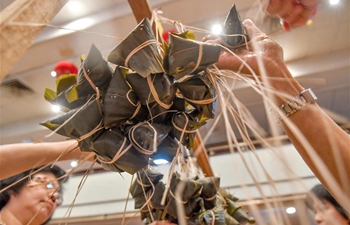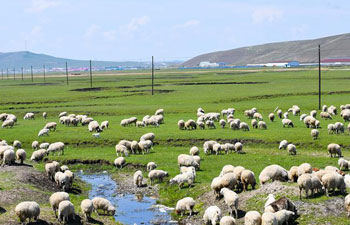QINGDAO, June 10 (Xinhua) -- Seedlings of a new rice strain developed by China's "father of hybrid rice" Yuan Longping have just been planted in fields reclaimed from deserted fish ponds on China's eastern seashore, where high salinity had made the soil infertile.
"We cross-pollinated wild rice strains with cultivated rice plants to develop the hybrid rice," the developer said.
The 66-hectare experimental rice fields in Qingdao had been a rice farm before being flooded by sea water in 1963. Farmers then transformed it into fishery ponds. But they were later deserted due to deteriorated water quality.
According to Zhang Guodong, deputy director of Qingdao's saline-alkaline tolerant rice research and development center, which collaborates with Yuan's team, the field planting of the hybrid rice will provide a demonstration on the feasible plantation method to transform saline soil into rice fields nationwide.
More than 920 hectares of alkaline soil in Qingdao, east China's Shandong Province, are expected to be treated so that the soil salinity rate can be kept under 6 parts per 1,000 to cultivate the saline-alkaline tolerant plant in the next three years.
Yuan's team has developed a set of new technique to ensure the hybrid rice's survival in a high salinity environment. Pipes equipped with sensors controlled by a big data center are set underneath the farmland. The system measures the soil condition and automatically regulates the supply of water and fertilizer through the network.
Zhang said that although infertile, alkaline soil was not contaminated by heavy metal pollution, as often seen in China's arable land due to an excessive use of chemical fertilizers.
He said that apart from Qingdao, the team had planted the rice in six other testing bases including Kashgar Prefecture of Xinjiang Uygur Autonomous Region and Shaanxi Province in northwest China, Zhejiang and Jiangsu provinces in east China and the northeastern province of Heilongjiang this year.
The rice is expected to be reaped in October.
Zhang said the test fields nearly covered all types of alkaline soil in China. By next year, the project will be expanded to cover a total of 6,666 hectares of test fields in the region, using the rice strain and new plantation technique.
There are over 99 million hectares of alkaline land in China, which is 10 percent of the world's total. Apart from natural causes, they were generally formed by the building of seaside cooling towers and fishery ponds.
Yuan, 88, said it was his dream that China would transform 6.7 million hectares of the saline land into rice fields planted with the modern technique. When that happens, based on a conservative estimate, the croplands could expect a yield of 30 billion kg a year, enough to feed 80 million people.
Yuan has repeatedly renewed his world record in rice yields since he began theoretical research of hybrid rice 50 years ago. His hybrid rice development has greatly enhanced China's rice yields and contributed to ensuring the country's food security, as about 65 percent of Chinese people depend on rice as a staple food.
His latest record was set in north China's Hebei Province last year, where his experimental fields achieved a yield of 17.2 tonnes per hectare.
China's export of saline-alkaline tolerant rice and the technique has been eyed as a way to tackle the world's food issues. Yuan's team was invited to make a trial plantation of the saline-alkaline tolerant rice in experimental fields in Dubai in January, achieving huge success.
According to the global report of the food crisis in 2018 by the Food and Agriculture Organization of the United Nations, the number of people facing food insecurity globally has reached 124 million, compared to 108 million a year before.




